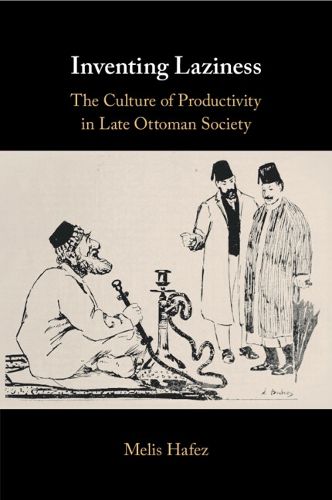Readings Newsletter
Become a Readings Member to make your shopping experience even easier.
Sign in or sign up for free!
You’re not far away from qualifying for FREE standard shipping within Australia
You’ve qualified for FREE standard shipping within Australia
The cart is loading…






Neither laziness nor its condemnation are new inventions, however, perceiving laziness as a social condition that afflicts a 'nation' is. In the early modern era, Ottoman political treatises did not regard the people as the source of the state's problems. Yet in the nineteenth century, as the imperial ideology of Ottomanism and modern discourses of citizenship spread, so did the understanding of laziness as a social disease that the 'Ottoman nation' needed to eradicate. Asking what we can learn about Ottoman history over the long nineteenth-century by looking closely into the contested and shifting boundaries of the laziness - productivity binary, Melis Hafez explores how 'laziness' can be used to understand emerging civic culture and its exclusionary practices in the Ottoman Empire. A polyphonic involvement of moralists, intellectuals, polemicists, novelists, bureaucrats, and, to an extent, the public reveals the complexities and ambiguities of this multifaceted cultural transformation. Using a wide variety of sources, this book explores the sustained anxiety about productivity that generated numerous reforms as well as new understandings of morality, subjectivity, citizenship, and nationhood among the Ottomans.
$9.00 standard shipping within Australia
FREE standard shipping within Australia for orders over $100.00
Express & International shipping calculated at checkout
Neither laziness nor its condemnation are new inventions, however, perceiving laziness as a social condition that afflicts a 'nation' is. In the early modern era, Ottoman political treatises did not regard the people as the source of the state's problems. Yet in the nineteenth century, as the imperial ideology of Ottomanism and modern discourses of citizenship spread, so did the understanding of laziness as a social disease that the 'Ottoman nation' needed to eradicate. Asking what we can learn about Ottoman history over the long nineteenth-century by looking closely into the contested and shifting boundaries of the laziness - productivity binary, Melis Hafez explores how 'laziness' can be used to understand emerging civic culture and its exclusionary practices in the Ottoman Empire. A polyphonic involvement of moralists, intellectuals, polemicists, novelists, bureaucrats, and, to an extent, the public reveals the complexities and ambiguities of this multifaceted cultural transformation. Using a wide variety of sources, this book explores the sustained anxiety about productivity that generated numerous reforms as well as new understandings of morality, subjectivity, citizenship, and nationhood among the Ottomans.